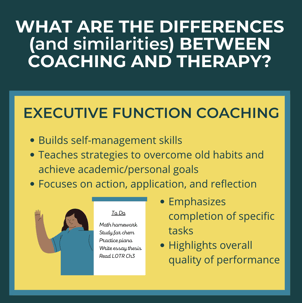Over the last few years, you may have noticed that there are more conversations happening around mental health, and for good reason. Whether it's primarily due to pandemic shifts, the prevalence of technology, or a combination of factors, more people than ever are feeling anxious and depressed. Although the suffering caused by these challenges is difficult to adequately capture (especially for those who haven't experienced it firsthand), there is one silver lining to this trend - mental health support is becoming less stigmatized than ever before. 
And this is undoubtedly a great thing!
However, next to the worrying trends in mental health challenges, there's another troubling development growing right alongside it - a rapid increase in ADHD diagnoses. These two trends may seem to exist independently, but this couldn't be further from the truth. Those with ADHD are significantly more susceptible to anxiety and depression, which means ADHD and mental health challenges are often co-existing. This leads to an interesting question...
What should you treat first: ADHD or mental health challenges?
The answer to this question depends on two main factors: the type of treatment being considered for ADHD and the severity of the mental health challenges. As Executive Function coaches, we are often considered a critical piece in the ADHD treatment puzzle, especially for those who have problems with things like procrastination, time-management, and other Executive Function challenges. That being said, it's difficult to make improvements in those areas when there's co-existing untreated depression and/or anxiety.
For this reason, we always recommend that individuals who are seriously struggling with their mental health seek support for that first and foremost.
But what if someone's mental health is stable, yet their ADHD symptoms are completely unmanageable? Do they need a therapist or an Executive Function coach? And most importantly...
What are the key differences between therapy and Executive Function coaching?
Although there are a number of similarities between therapy and Executive Function coaching, the truth is that each one focuses on entirely different areas of our lives. Executive Function coaching builds self-management skills by identifying problem areas and teaching relevant strategies that help clients better navigate those challenges. How this looks in practice will differ depending on the individual, but the desired outcome of coaching remains the same - clients build new strategies and habits that allow them to feel more confident in their ability to actualize their goals.
Although this outcome may also occur in therapy, it's not usually the primary objective. Instead, therapy is more focused on improving a client's overall mental health by introducing coping strategies that alleviate emotional pain or confusion.
Are there any similarities between therapy and Executive Function coaching?
There are a number of similarities between therapy and Executive Function coaching. Both involve 1:1 work with a professional who knows how to facilitate growth and behavior change. In each instance, this process involves developing and nurturing an individual's confidence. But most of all, both interventions have the potential to positively transform lives in meaningful ways.
The Takeaway
When it comes to supporting ADHD, Executive Dysfunction, and mental health issues, there is no easy solution. However, it's always best to start where the pain is strongest. If that pain is primarily in the form of anxiety and depression, then the best course of action is to contact a therapist or counselor first.
We find that when mental health challenges are not addressed, it's hard for coaching to gain traction. In other words, untreated depression or anxiety can make it tough to have the energy and focus needed to effectively implement new tools and approaches from coaching.
This is also why we work in tandem with therapists - when mental health becomes more stable but Executive Dysfunction continues to be unmanageable, therapists often recommend Executive Function coaching. In fact, in 2021, more of our clients came to us from therapists' recommendations than anywhere else!
In other words, whether you're at the very beginning of the support journey or somewhere in the middle, we're here when you need us.
 Download our infographic to learn more key distinctions between Executive Function coaching and therapy.
Download our infographic to learn more key distinctions between Executive Function coaching and therapy.
Photo by Eastman Childs on Unsplash

